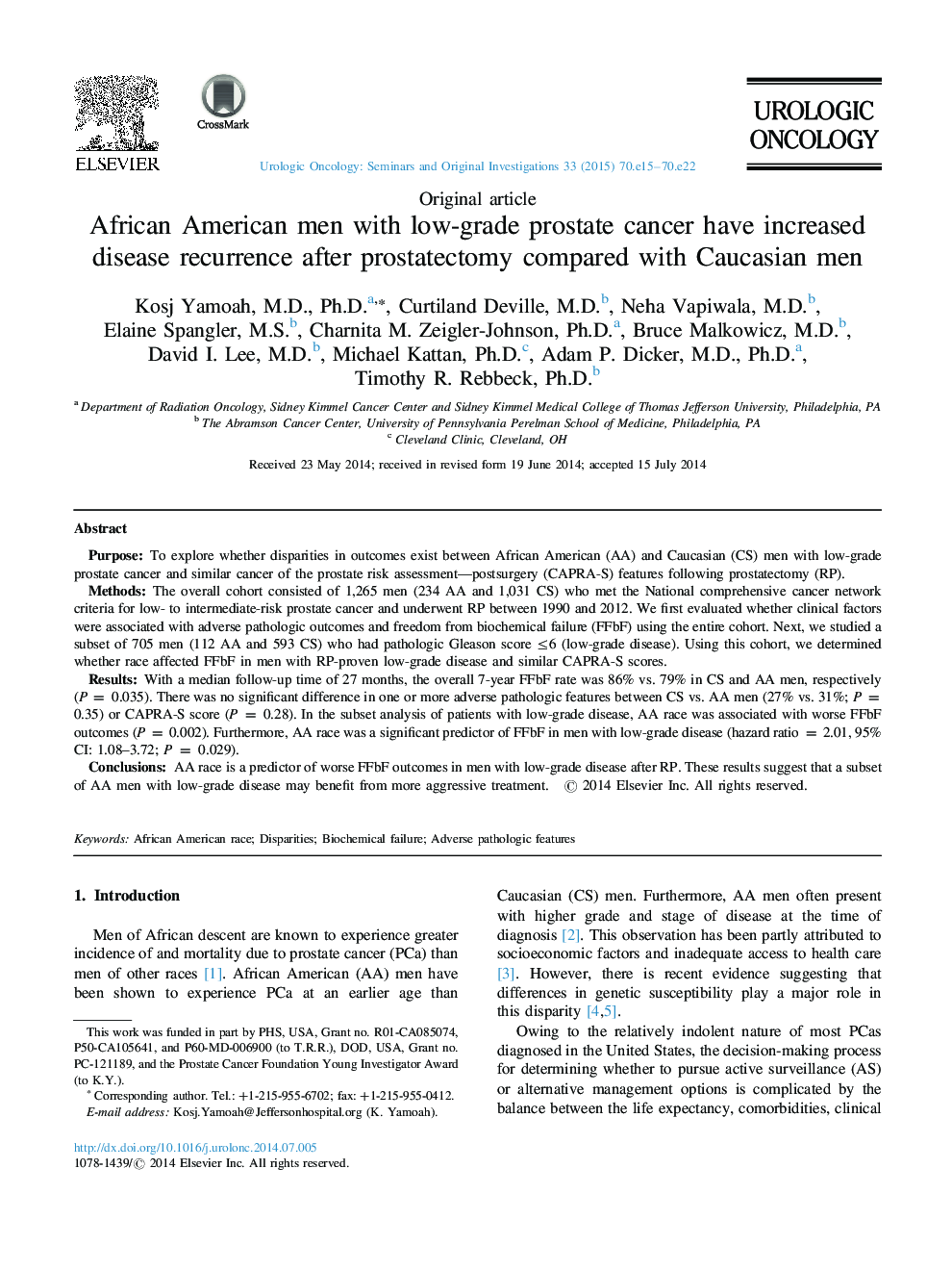| کد مقاله | کد نشریه | سال انتشار | مقاله انگلیسی | نسخه تمام متن |
|---|---|---|---|---|
| 6194136 | 1259350 | 2015 | 8 صفحه PDF | دانلود رایگان |
PurposeTo explore whether disparities in outcomes exist between African American (AA) and Caucasian (CS) men with low-grade prostate cancer and similar cancer of the prostate risk assessment—postsurgery (CAPRA-S) features following prostatectomy (RP).MethodsThe overall cohort consisted of 1,265 men (234 AA and 1,031 CS) who met the National comprehensive cancer network criteria for low- to intermediate-risk prostate cancer and underwent RP between 1990 and 2012. We first evaluated whether clinical factors were associated with adverse pathologic outcomes and freedom from biochemical failure (FFbF) using the entire cohort. Next, we studied a subset of 705 men (112 AA and 593 CS) who had pathologic Gleason score≤6 (low-grade disease). Using this cohort, we determined whether race affected FFbF in men with RP-proven low-grade disease and similar CAPRA-S scores.ResultsWith a median follow-up time of 27 months, the overall 7-year FFbF rate was 86% vs. 79% in CS and AA men, respectively (P = 0.035). There was no significant difference in one or more adverse pathologic features between CS vs. AA men (27% vs. 31%; P = 0.35) or CAPRA-S score (P = 0.28). In the subset analysis of patients with low-grade disease, AA race was associated with worse FFbF outcomes (P = 0.002). Furthermore, AA race was a significant predictor of FFbF in men with low-grade disease (hazard ratio = 2.01, 95% CI: 1.08–3.72; P = 0.029).ConclusionsAA race is a predictor of worse FFbF outcomes in men with low-grade disease after RP. These results suggest that a subset of AA men with low-grade disease may benefit from more aggressive treatment.
Journal: Urologic Oncology: Seminars and Original Investigations - Volume 33, Issue 2, February 2015, Pages 70.e15–70.e22
